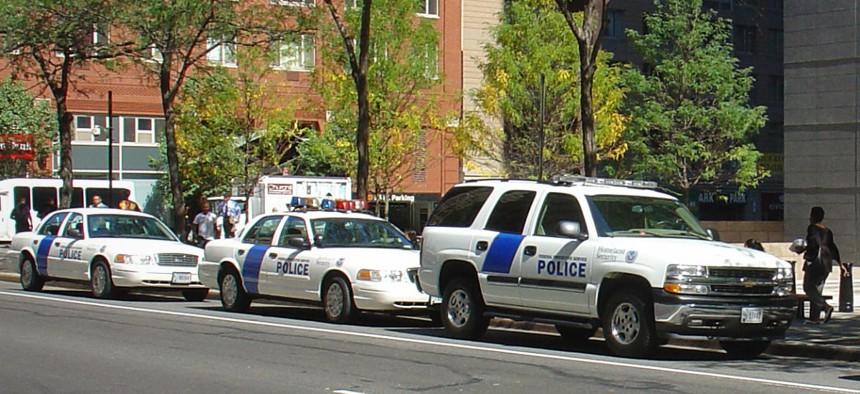
Flicker user ZeroOne
House: No Bonuses For DHS Officials Who Can’t Take Care of Government Cars
The chamber passed a bill tying performance awards to stronger oversight of department’s vehicle fleets.
Homeland Security would have to withhold bonuses from officials who fail to properly manage the department’s vehicle fleets under a bipartisan bill the House just passed.
The DHS Stop Asset and Vehicle Excess Act, which the chamber passed on Monday, aims to enforce greater accountability on officials with vehicle fleet responsibilities by tying performance awards to compliance with new reporting requirements designed to improve the oversight and tracking of the department’s cars.
If the law is enacted, beginning in fiscal 2018 DHS officials will have to design a “vehicle allocation tool” and craft specific management plans for annual requests on their vehicle fleet needs and uses, including number of cars, trips taken, and mileage. If they fail to do that, then they cannot receive a performance award during the next fiscal year. The bonus prohibition would take effect in fiscal 2019.
That’s not the only accountability measure embedded in the legislation: If officials and senior executives don’t comply with the reporting requirements, then they won’t be able to use a car service to do their jobs. The bill, which puts the department’s undersecretary for management in charge of overseeing vehicle fleet management, also would prohibit the undersecretary or any DHS component heads from approving any vehicle lease, acquisition, or replacement beginning in fiscal 2019 if officials didn’t properly track and report on fleet management in the prior fiscal year.
The DHS Save Act requires the undersecretary to collect information quarterly on the size, composition, cost and use of department vehicle fleets.
“With the second largest civilian vehicle fleet in the federal government, DHS must have stricter controls in place at the headquarters level in order to rein in rogue components,” said Rep. Scott Perry, R-Pa., the bill’s sponsor. “Every dollar wasted on mismanagement is one less that goes to actually protecting the public.”
The legislation is in response to an October 2015 inspector general report that blasted the Federal Protective Service for flouting federal and department policies on vehicle fleet management and wasting more than $2.5 million in fiscal 2014 because of poor oversight of the program. The watchdog found that FPS, whose parent agency is DHS and is responsible for protecting federal buildings, had more cars than officers.
“This is exactly how the legislative process is supposed to work,” Perry said. “A problem was identified by an inspector general, we held a hearing to explore the issue further, and a bipartisan legislative solution was passed by the House.”
Homeland Security owns or leases 56,000 automobiles at a cost of $534 million annually, according to a 2012 IG audit. A 2011 memorandum from President Obama directed agencies to reduce their fleet sizes.
(Image via Flickr user ZeroOne)







